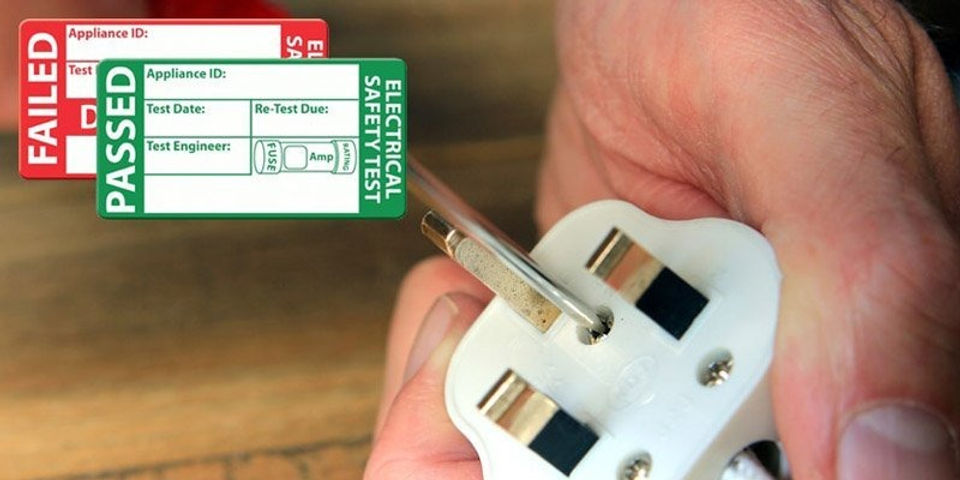Our Services
Quality Guaranteed
Testing
We specialize in Portable Appliance Testing, offering only top quality and efficient results. When you book this service, we guarantee you’ll be satisfied with the process and result.
Commercial
We carry out testing on 240v, 110v and 415v equipment.
This also includes Site tools, Power tools, cables, office equipment, catering and commercial equipment.
Rental Properties
We can offer a comprehensive testing service for all your rental properties and we liaise with tenants to arrange testing and automatically contact you when properties are due for re-testing
About On-Site PAT Testing
Your Local Portable Appliance Testing Specialist
On-Site PAT Testing is a small local business established in 2018 covering the North East Lincolnshire area. We offer a fast, efficient and friendly service to any business. We currently work at offices, dental surgeries, property rental companies, local councils, café’s, engineering companies and off shore windfarms to name but a few.


Why do you need PAT Testing
Companies and landlords in the UK have a legal obligation to protect the health and safety of their employees and tenants. Portable Appliance Testing – otherwise known as PAT testing – is a key part of this.
PAT testing is the process of examining electrical appliances and equipment to confirm that they are fully operational and safe to use. It involves a series of visual checks and electronic tests, which help establish whether a specific appliance fulfils the legal obligations to ensure a high standard of electrical safety.
The guidelines around PAT testing require that all landlords, employers and even self-employed individuals make sure that their portable electrical appliances are safe and suitable for the intended use. Damage and fault can occur with all electrical equipment use, which makes it essential that these items are tested regularly for safety.
PAT guidelines were put into effect to ensure that all companies conform to the Health and Safety at Work Act of 1974, Electricity at Work Regulations of 1989, Provision and Use of Work Equipment Regulations of 1998 and the Management of Health and Safety at Work Regulations of 1999.
Here at On-Site PAT Testing we can carry out all your PAT testing requirements, ensuring you are conforming to legislation and meeting your safety at work requirements.
Who can conduct a PAT Test?
The law states that PAT tests should be carried out by a “competent person”. According to the IEE Code of Practice, this means the person must have:
An adequate knowledge of electricity;
Sufficient experience of electrical work;
An adequate understanding of the appliance that needs testing and practical experience of that class of appliance;
An understanding of any hazards that could arise during the work and the precautions that should be taken;
And the ability to recognise whether it’s safe to continue the work.
People who regularly conduct PAT testing will typically possess relevant and recognised training. This could be in the form of an official qualification, or it may have been acquired by attending a course provided by an electrical health and safety company or qualified PAT testing instructor.
PAT Testing for Businesses
As a business and employer, you have a duty to prevent any harm coming to your employees and customers. A PAT testing (Portable appliance testing) is one of the ways that you can comply with this obligation. Failure to implement a programme of regular appliance testing can also have implications for your insurance policy should an electrical related injury claim be made.
Insurance companies assume that when giving insurance cover to a business, the owners of that business are complying with all regulations necessary. An insurance company may reduce, delay or even refuse to pay on a claim for damage if an appliance that has not been tested has caused the damage.
On-Site PAT Testing are able to carry out testing on not only 240v equipment but also 110v and 415v equipment as well.


PAT Testing for Landlords
Anyone who lets residential accommodation as a business activity (such as houses, flats and bedsits, holiday homes, caravans and boats) and is acting as Landlord, is required by law to ensure the equipment they supply as part of the tenancy is safe. On-Site PAT Testing can take care of this for you.
As a landlord, you have a duty to prevent harm to your tenants from electrical appliances that you supply. Portable appliance testing is widely regarded as being the best way of complying with this obligation. Without a programme of planned appliance testing and maintenance, you could be legally liable for damages resulting from your untested appliances. This covers all portable appliances that you supply, including fridges and freezers, microwave ovens, televisions and vacuum cleaners.
The regulations on electrical appliances PAT testing for landlords’ states:
The Housing Act 2004 (England and Wales) provides for a safe and healthy environment for any potential occupiers, or visitors, from an electrical perspective this includes portable electric equipment. The condition of associated leads and plugs of portable appliances should also be taken into account in the assessment if they are provided as part of a rented dwelling. Portable Appliance Testing is one way of ensuring equipment is safe for continued use.
Guidance from Communities and Local Government (CLG) indicates that when accommodation is re-let, the electrical appliances will be classed as being supplied to that tenant for the first time, and should therefore be re-checked.
The Electrical Equipment (Safety) Regulations 1994, mandatory since 1 January 1997, state that all electrical appliances supplied with let accommodation must be safe. This applies to both new and second-hand appliances and covers all electrical items supplied for the intended use of the Tenant. The only sure method of ensuring that these appliances are safe is to have them tested by a trained competent person using the appropriate calibrated portable appliance testing equipment.
meticulous detail, resulting in a product that is as good as new.


